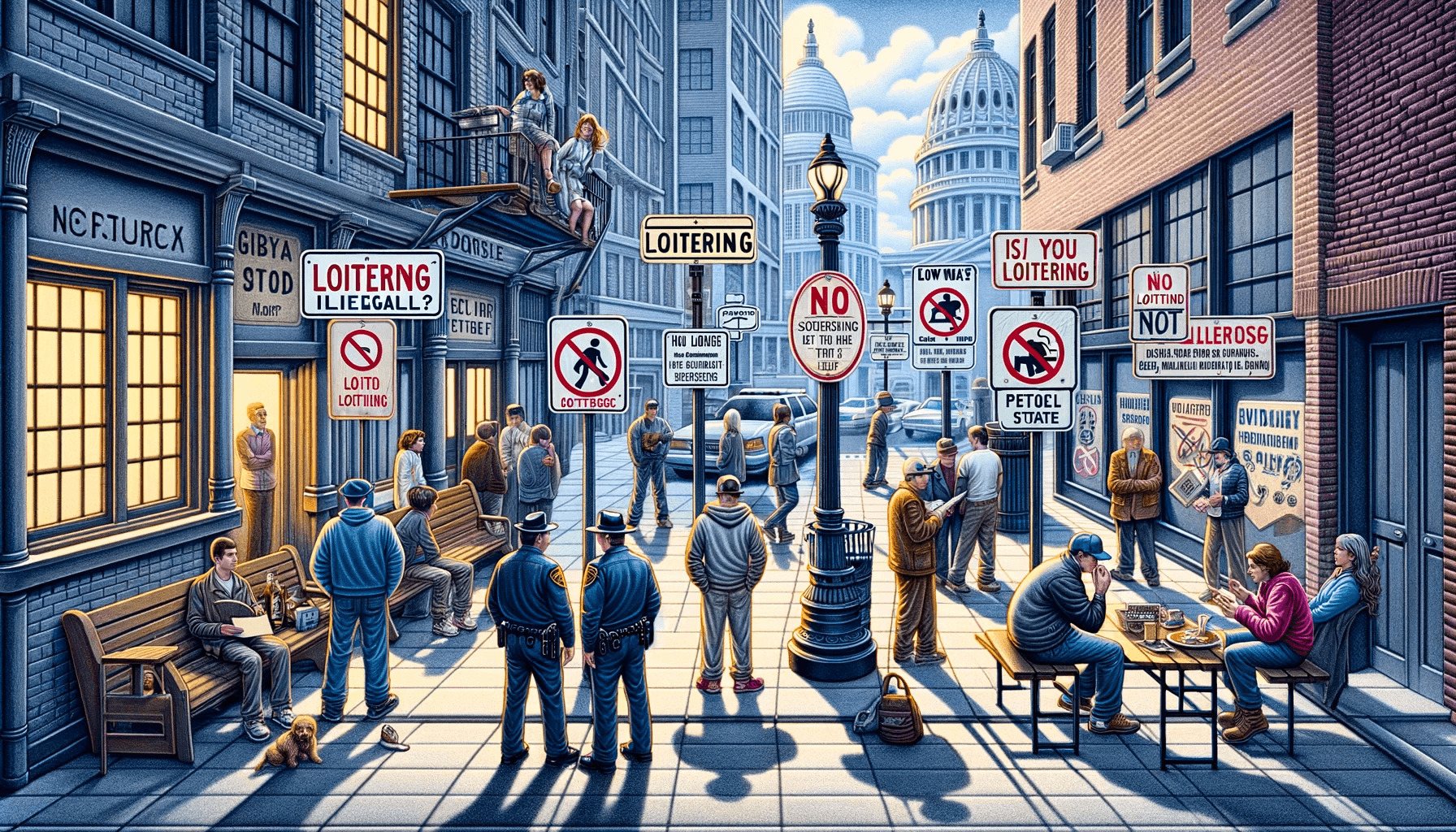Hey there! I’m John M. Kaman from Kaman Law Firm. Today, let’s address a question that often stirs up curiosity and sometimes controversy: “Is loitering illegal?” Loitering laws have been a subject of much debate, often intersecting with issues of public safety and individual freedoms. Let’s delve into the intricacies of loitering laws.
Understanding Loitering: The Basics
Loitering, in its simplest terms, refers to hanging around or lingering in a public place without an apparent purpose. It becomes a legal concern when it potentially interferes with public order or safety.
Key Aspects:
- Definition Variability: The legal definition of loitering can vary significantly from one jurisdiction to another.
- Purposeless Presence: Typically, loitering is described as being in a place without a legitimate reason.
Legal Status of Loitering in the United States
In the U.S., whether or not loitering is illegal depends largely on local laws and ordinances.
- Municipal Ordinances: Many cities and towns have specific ordinances that define and regulate loitering.
- State Laws: Some states have statutes that address loitering, particularly in the context of specific concerns like soliciting or trespassing.
The Controversy Surrounding Loitering Laws
Loitering laws are often contentious, primarily due to concerns over their enforcement and impact on civil liberties.
- Civil Liberties Concerns: Critics argue that loitering laws can be used to target specific groups unfairly, leading to profiling.
- Vagueness and Abuse: There are instances where loitering laws have been criticized for being too vague, giving law enforcement too much discretion.
Enforcing Loitering Laws
Law enforcement agencies are tasked with enforcing loitering laws, but they must do so within the bounds of legal and constitutional parameters.
- Clear Guidelines: Effective enforcement requires clear, specific guidelines to avoid arbitrary or discriminatory practices.
- Community Policing Approaches: Some jurisdictions focus on community engagement and education rather than strict enforcement.
Legal Defenses Against Loitering Charges
If you’re facing a loitering charge, there are several legal defenses that can be employed.
- Lack of Notice: Arguing that there were no clear signs or warnings against loitering in the area.
- Legitimate Purpose: Demonstrating that you had a legitimate reason for being in the location.
- Constitutional Challenges: Raising issues of freedom of movement and assembly, especially if the law is overly broad.
Impact on Homelessness and Public Spaces
Loitering laws can particularly impact homeless populations and the use of public spaces.
- Homelessness Issues: These laws often affect homeless individuals who rely on public spaces.
- Balancing Public Use and Order: Cities struggle to balance maintaining public order with the rights of individuals to use public spaces.
Conclusion: Navigating the Complexities of Loitering Laws
In summary, the legality of loitering in the U.S. is nuanced and varies widely depending on local laws. Understanding these laws is crucial, especially in light of the broader issues of public safety, individual rights, and social justice.
At Kaman Law Firm, we’re committed to helping individuals navigate the complexities of loitering laws and their implications. If you have questions or need legal assistance regarding loitering laws or related issues, feel free to reach out. Let’s work together to understand and responsibly navigate these legal landscapes.









Leave a Reply